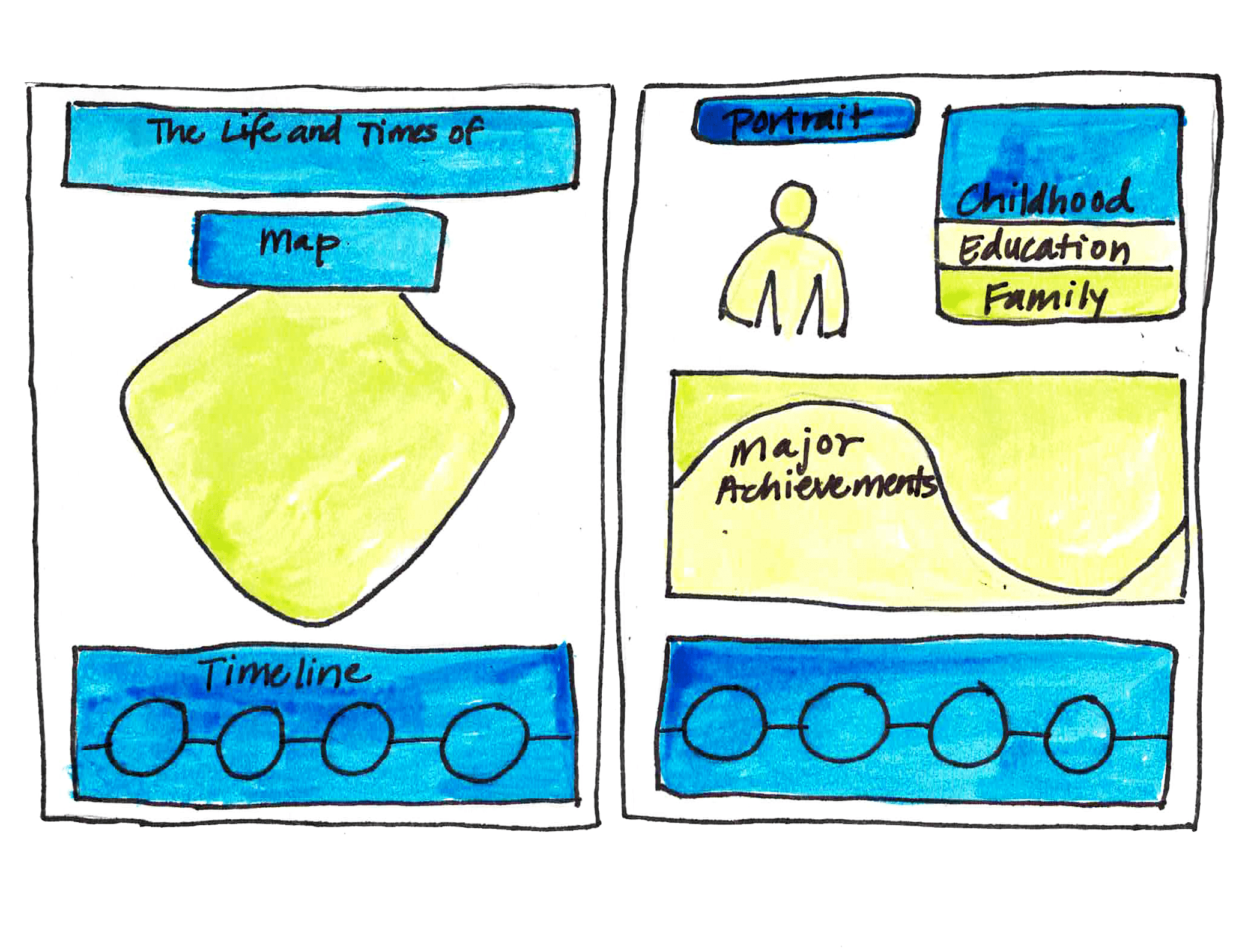Writer’s Workshop is a writing program your whole family, from emergent writers right up to Mom and Dad can explore together. This is a sample exercise about writing a biography that includes printable biography notebooking pages. Try it with all your kids.
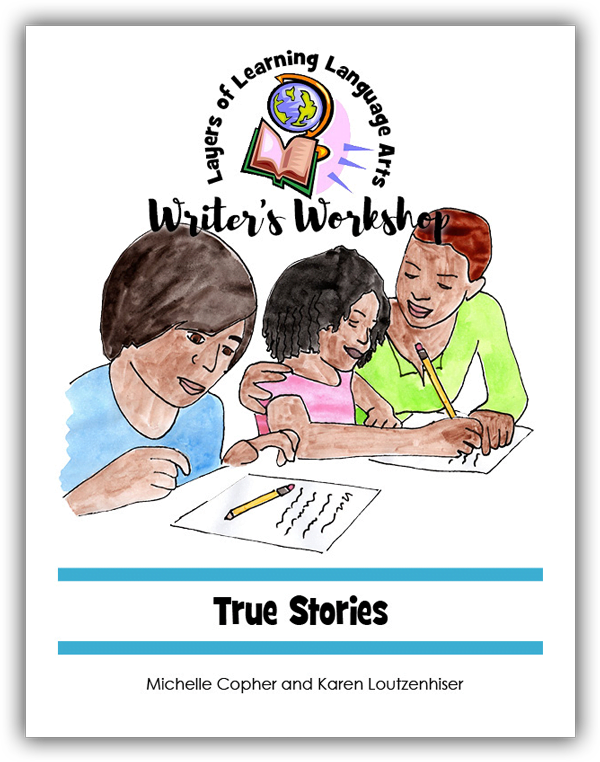
his Writer’s Workshop exercise is from Writer’s Workshop True Stories. In True Stories you’ll learn how to find a plot in your own life and research, paint a picture of real-life settings with your words, and convey the real emotions you and other real people experience. You’ll learn about autobiographies, journals, personal narratives, biographies, and other forms of true stories. In the end, you’ll take one of your true stories all the way through the writing process to publication. Join us for a family-style writing program in Writer’s Workshop.
Biographies are true stories about real people. You can write about family members, friends, heroes, famous people, historic figures, and more. As you write a biography, choose someone who interests you so you will be excited to share their story.
Step 1 Mini-Lesson
Start each Writer’s Workshop lesson off with a 5-10 minute mini-lesson with all of your kids. The sidebars of each Writer’s Workshop unit are lined with mini-lesson ideas to choose from. For this lesson, you will learn a simple punctuation rule about hyphens being used to connect a verb and noun.
Hyphens are used when you connect verbs together to create a noun.
The date was an eye-opener.
You can always count on the gift-giver to show up.
We are going to the restaurant to break the burger-buster record.
Make a list of your own verb phrases with hyphens that act as nouns.
Step 2 Exercise: Biography Notebooking
Spend most of your Writer’s Workshop time on the exercise, which can last as long or as short as you need it to each day.
Choose a subject and use “The Life and Times of __________” printable to help you craft a biography notebooking page about any noteworthy person. Arrange the elements on the page. The printable includes a title; a map area; a timeline with spots for eight significant events; a portrait, childhood, education, and family flip book; and a major achievements interlocking booklet.
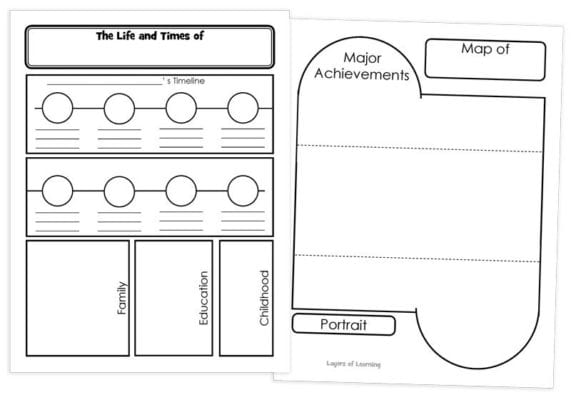
Work on each part – the map, the timeline, achievements, the flipbook, and the portrait one by one. It’s best if you do this while surrounded by several informational resources about the subject you chose. Books, websites, and videos are all great resources to use. If you don’t finish in one day, no worries. Just pick up where you left off the next day. Once you have all of the parts written, glue them down to sheets of card stock to create your biography notebooking pages.
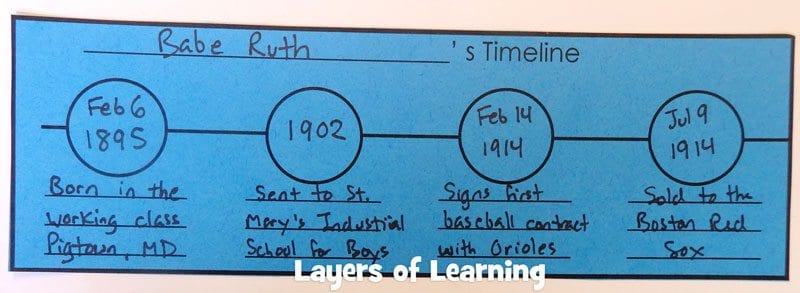
Here’s an example of a completed exercise.
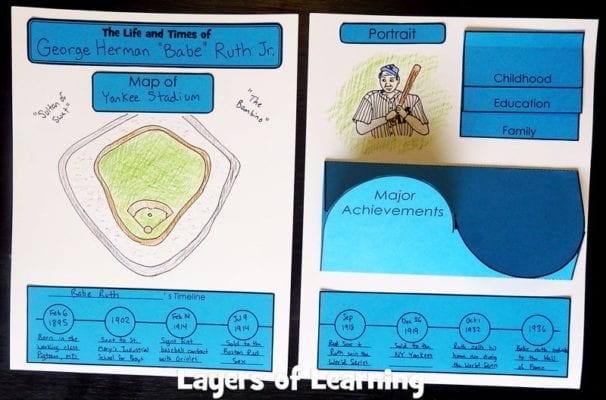
This exercise will go into the Journal section of your Writer’s Notebook.
Step 3: Writing Project
Most exercises stay in your Writer’s Notebook to be used a reference, for inspiration, or to be tossed at a later date. About once a month, one piece of writing should be taken clear through the writing process. This is your writing project.
If I were to guide my child through taking this exercise through the Writing Process I would encourage her to take some of the timeline events and achievements and write them in a biographical story format, detailing the important highlights of Babe Ruth’s life. After revising and editing, she would include this notebooking activity as her prewrite, and add it to her draft, and then to her final published piece. For the writing project, every step of the writing process gets turned in and evaluated using the rubric from the unit.
You can learn details about the writing process and how to mentor writers in the Writer’s Workshop Guidebook.
Step 4: Evaluating Writing
Every piece of writing that makes it to publication needs to be shared before an audience and then evaluated. The audience should cheer for the writer and ask curious and positive questions about the writing when appropriate. Evaluations should be designed to help the writer grow, not just to create a grade. Every Writer’s Workshop unit comes with specific helps for the evaluator including a rubric that is specific to the genre being taught. General writing evaluation criteria and strategies are taught to the parent or mentor in the Writer’s Workshop Guidebook.
What You’ll Find in Every Writer’s Workshop Unit
Printables
You’ll find printables in every Writer’s Workshop unit. They are tools for helping kids learn the writing process, skills, and ways to write in specific genres. They make lessons in a family-school setting a little more manageable for parents too.
Ideas Banks
In each unit, kids will be doing a variety of writing exercises as well as one project. They will learn to take their project through the writing process, incorporating what they’ve learned during the exercises. Each unit has a big idea bank for kids to choose from too.
Rubrics
Every unit also includes a rubric to help parents or mentors know how to give feedback that will help writers grow. Rubrics are tools writers can use to self-check, and mentors can use to know what to look for in each writing genre. We never just slap a grade on writing. Every bit of feedback is a tool to improve and grow.
More Writer’s Workshop
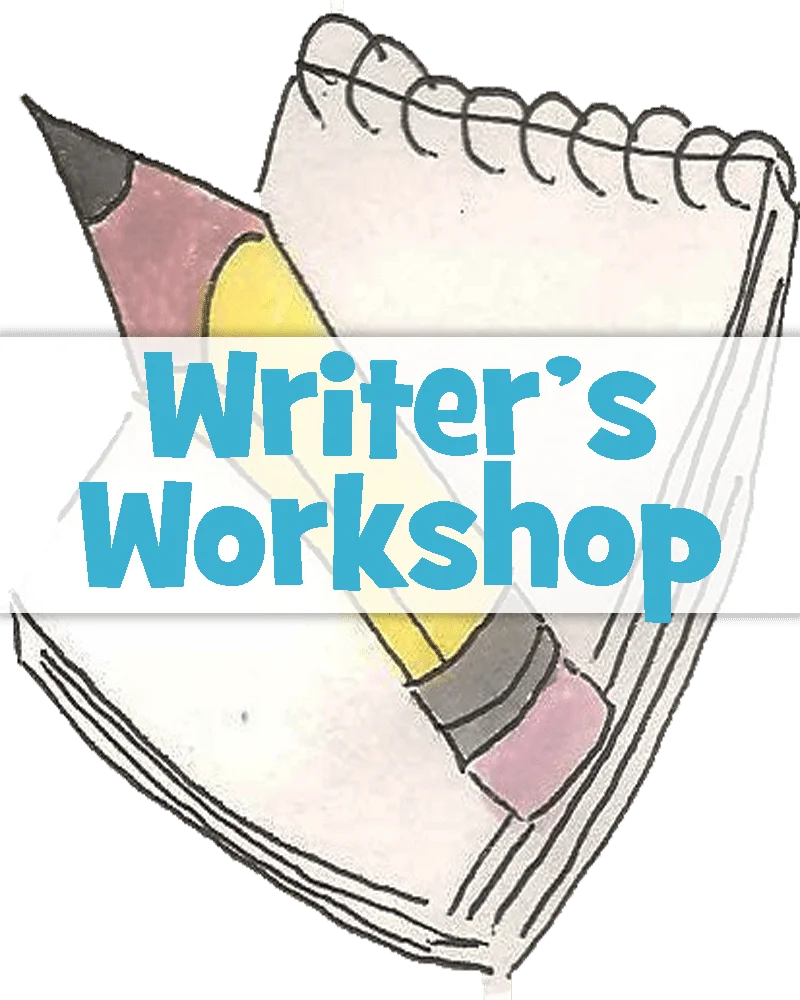
Learn more about Writer’s Workshop and how it can help you create writers (not just grammar workbook filler-outers!). We invite you to check out the Writer’s Workshop Curriculum Guide. Then see how Layers of Learning can change your whole homeschool into a happy, hands-on family school with the Writer’s Workshop Guidebook. We believe learning is about exploring! If you like exploring, you’ll love the rest of the Layers of Learning program too – history, geography, science, and art, all taught with your whole family exploring together.
Get a Free Unit
Choose between the first unit in each Layers of Learning subject to try for free when you sign up for the newsletter.
We never spam and you can cancel your subscription at any time.


